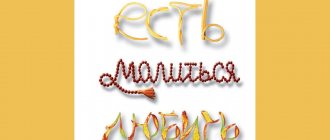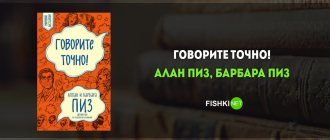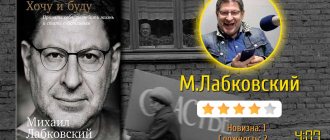Don't get lost in something that simply isn't there...
You’ve just figured out what’s what in this life, grown smarter and wiser, when someone from above suddenly decides that it’s time to go out - to where no one has returned from. Everyone ever asks the question: why success, love, suffering, if you still have to die? Perhaps one of the books listed will answer this question.
Mark Williams, Denny Penman "Mindfulness. How to find harmony in our crazy world"
The authors of this book are Doctor of Biochemistry and science journalist Danny Penman and Professor of Psychology at Oxford University Mark Williams. Both of them are engaged in the issues of mindful meditation as an effective way to prevent and combat depression and suicidal tendencies.
People become depressed because they are no longer the main characters in their own lives. They are constantly running somewhere, busy with something, owing something to someone. Their life resembles the endless running of a squirrel in a wheel from which there is no way out. They miss themselves.
The authors call for breaking the system - “breaking patterns”, stopping mechanically following habits, getting out of the routine, and offer an eight-week course in mastering mindful meditation for different occasions and themselves as mentors. “Your mind will calm down and become smooth like the mirror surface of a lake. ...Let life lead you by the hand,” they write.
Universe
Who wrote
Sergey Popov - Doctor of Science, Professor of the Russian Academy of Sciences, leading researcher at the State Astronomical Institute named after. PC. Sternberg Moscow State University. Sergei is one of the most active popularizers of science and the initiator of a petition against amendments to the Education Law, which collected more than two hundred thousand signatures in a couple of months.
Who should read it and why?
This dish is for those who do not like seasonings and side dishes, but want to eat only meat. The style of the book can be described as popular science minimalism. Even the jokes that popularizers like to add to their narrative are practically absent here (although, I assure you, the author has an excellent sense of humor).
Sergei Popov sorted the Universe into sections: our Sun, other stars, galaxies, exoplanets, extraterrestrial life, neutron stars, black holes, dark matter, dark energy, etc. This was done with skill, the author is an astrophysicist.
Selected Quotes
“This book is definitely not a textbook. However, it provides a holistic, orderly description of our ideas about the Universe and the methods of its research.”
“If you want to understand the physics of celestial bodies a little deeper than is usually presented in popular popular literature, but are not ready to immediately deal with many complex formulas, then this book is for you.”
“The book is not that simple. But the world is complicated.”
Bernard Werber "Empire of Angels"
Bernard Verber is a French writer and philosopher. The novel “Empire of Angels” (2000) is the second part of the novel “The Thanatonautes”.
The main character of the novel, Michel Panson, goes to heaven after a disaster and becomes an angel. As befits angels, now he will protect the souls of three “clients”. Michelle chooses a reflective, emotional Frenchman, a young American woman dreaming of the Miss Universe title, and a Russian guy abandoned by his parents, who served in a colony and served in a hot spot. The angel’s task is, with the help of clues in the form of dreams and intuition, to allow the souls of “clients” to be reborn and reach a new level of development in order to become angels themselves. The angel has one more goal: to find out who controls him and what awaits him in the future.
Opinions about the book are divided, but most find it fascinating and inspiring. It touches on eternal questions about yourself and your place in life, about what will happen next - questions that all people who come into this world ask themselves. Recommended reading when feeling depressed.
The plot of "Empire of Angels" echoes the plot of Richard Bach's novella "Jonathan Livingston Seagull."
"To Kill a Mockingbird…"
Author: Lee Harper
American South. Small sleepy town. The little girl tells the story on her own behalf. This is the story of her brother Jim, her friend Dill and her father, an uncompromising lawyer named Atticus Finch, one of the last representatives of the former “southern aristocracy”. The storyline of the work is the case and trial of an African-American man who is accused of violence against a white woman. But in a broader sense, this is a story about a turning point in America, when the racism, hatred and bigotry that characterized the American South were becoming obsolete. The United States is about to see a change...
Richard Bach "Jonathan Livingston Seagull"
This philosophical novel by the American pilot, stunt pilot and flight instructor Richard Bach, whose main place in his life was the sky, brought him worldwide fame. Writing books was Richard Bach's second hobby, which gradually overshadowed the first. It is not surprising that the main theme of his books is flight.
Richard Bach's spiritual life was influenced by the mystical writers Aleister Crowley and Carlos Castaneda, most notably in Jonathan Livingston Seagull. This novella, written in 1970 and immediately becoming a bestseller, is an allegorical parable. Richard Bach once mentioned that her idea came to him suddenly, as if dictated by a voice from above.
The hero of the novel is the young Seagull Jonathan Livingston, named after the pilot whom Richard Bach admired. The seagull lives in the Flock. For the Pack, the meaning of life is food. When it’s time to feed, the seagulls gather in a crowd, and each one wants to grab a fatter piece.
Jonathan is not like that. He loves flying and speed. He wants to know the limits of his capabilities. “Be like everyone else,” his mother tells him. And Jonathan honestly tries, but he can’t. For experimenting with speed, he is expelled from the Pack. Now he is lonely, hungry and... happy.
His loneliness is broken by two shining seagulls: they take him to a more perfect world, where Jonathan meets people like himself - seagulls for whom the meaning of life is in flight. Here he learns: consciousness is not a prisoner of the body, the possibilities for self-improvement are limitless. He goes to Earth to pass on this knowledge to other seagulls expelled from the Flock for their passion for flying. They will have to return to the Flock and talk about the wonderful world, about the sublime feelings that exist outside the limited world in which the Flock lives.
Whether he succeeded will be known to those who read this parable, written in wonderful language, thanks to which it can be read in one breath. Everyone will certainly find something useful for themselves in it.
The main idea of the parable: the meaning of life is in the pursuit of perfection.
"Pollyanna." Elinor Porter
A bestseller about the power of positive thinking. The main character, the girl Pollyanna, is forced to live with her stern aunt after the death of her parents. A fun game helps the baby cope with difficulties: in every situation, even the most dreary, she looks for positive moments. Thanks to her easy-going nature and optimistic outlook, Pollyanna begins to change the lives of people around her for the better. The book teaches you to accept difficult trials and see reasons for joy in any circumstances.
Pollyanna author Elinor Porter wrote primarily children's adventure stories and novels. Despite this, her works will be useful to people of all ages, as they raise themes of rejection, deprivation, and also inspire never to give up on life.
Shunryu Suzuki "Zen Mind, Beginner's Mind"
Anyone who was interested in the biography of the famous Steve Jobs, the founder of Apple, knows that Steve Jobs was a Buddhist and visited India to know himself and find the truth. The ideas of Zen Buddhism captured Jobs after he read the book “Zen Mind, Beginner's Mind,” which is a collection of conversations between Shunryu Suzuki and his American students.
Shunryu Suzuki headed the Soto school, the most popular and influential branch of Japanese Buddhism. The book “Zen Consciousness” can be called a practical guide to Zen meditation. But this does not mean that it will be of interest only to those who intend to master this practice.
Every person sooner or later wonders why he came into this world. But obsessive thoughts, the internal dialogue that he conducts with himself, do not allow him to concentrate. Finding the answer is possible only by achieving a special state - insight, the best way to which is Zen meditation.
The book allows you to look at the world, at yourself, at your life in a new way.
"White Oleander" Janet Fitch
The novel is about self-discovery through hard lessons, blossoming sexuality and the deep bond between mother and daughter, love that can be suffocating, and the redemptive power of art. This is a story about growth and self-acceptance. Throughout the novel, the main character goes through many trials, struggling to find her true identity and place in this world.
American writer Janet Fitch's prose is filled with sensual details and vivid imagery. Before becoming a world-famous author with White Oleander, Fitch was repeatedly rejected by publishers to publish her novels.
Dominique Loro “The art of living simply. How to get rid of unnecessary things and enrich your life"
Many of us do not realize that it is not difficult to become happy and live in harmony with ourselves. Dominique Loro offers his own recipe: you just need to get rid of the clutter in your thoughts and in your home. Destructive thoughts, prejudices, far-fetched rules and restrictions complicate our lives, serve as a source of stress, take away our health and time, and prevent us from focusing on the main thing.
We must filter reality to make room for what we really need. The epigraph to the book is the lines of a poem by the Japanese poet Issa Kobayashi, written in haiku style:
“This spring is my hut. Completely empty, completely full."
The author of the book is a French woman who travels the world in search of an ideal lifestyle. Canada, Mexico, Central America - everything is wrong. And finally she settled in Japan, where she found what she was looking for: “To live comfortably, in harmony with your consciousness, you need to live simply.” Possessing little allows you to comprehend the main thing - the essence of things.
Dominic warns that getting rid of excess is a painful process, but it is worth it: “The less of everything you have, the more free and fulfilled you feel.” Abundance corrupts the soul and takes it captive.
You need to “live like Zen,” the author writes, accepting life as it is, without trying to explain or analyze.
Are scientists hiding?
Who wrote
Alexander Sokolov is the only author in my top ten who is not a scientist. At the same time, he is one of the most prominent popularizers of science in the country, founder and editor-in-chief of the Anthropogenesis.ru portal, organizer of the Scientists Against Myths forum and many other events.
Who should read it and why?
“Are scientists hiding?” — a detailed guide to the world of pseudoscience. With caustic humor, the author explains in detail how to distinguish scientists from various swindlers and charlatans. This is a book for anyone who has ever wanted to argue with supporters of the flat Earth theory, the reptilian conspiracy, alien intervention in ancient history and hundreds of other dubious ideas. For novice fighters for scientific knowledge - just right.
Selected Quotes
“An experienced pseudoscientist is a master of disguise. Turn on at random any TV show in the genre “What official science is silent about,” and you will see a motley series of images: city crazy people are replaced by respectable-looking retired military men, echoed by gray-haired “honorary members of the International Congress of Cryptozoologists.”
“I’ll tell you a secret: there is no “official science”. There is simply science. And the conversation about “officiality” begins when someone really wants to move the discussion from the scientific plane to the plane of political, or even criminal-group showdowns.”
Nick Vujicic "Life Without Borders"
This is the first book by Australian motivational speaker Nick Vujicic, whose name is unlikely to be familiar to most. And in vain. We, healthy people, allow ourselves to whine and become depressed over trifles. We need to constantly push ourselves so as not to stop in our development. And Nick Vujicic, who was born without arms and legs, also manages to encourage others. He, who as a child, realizing that he was not like everyone else, wanted to die, now travels all over the world with motivational speeches and writes books, inspiring millions of people.
Nick Vujicic is married and has two healthy children.
He talks about his rules of life, about what gives him the strength to live and help desperate people in the book “Life without Borders. The path to an amazingly happy life." “Your life should be wonderful,” he says. “And I will help you find your own purpose in life.” One of Nick Vujicic’s rules is to find joy in any difficulties. It took him several years to understand this. After all, as Nick says, one of the main difficulties is to understand yourself.
Those lucky enough to meet Nick thank him for changing their lives.
“Chicken soup for the soul. 101 best stories."
Author: Hansen Mark Victor, Canfield Jack
Remember how, as a child, some illness put you to bed, and your grandmother fed you rich chicken broth? You have grown up, but your soul needs strengthening and care. These little stories can heal emotional wounds and strengthen the spirit when it seems that you have run out of strength. They will give your dreams wings and reveal the recipe for happiness - sharing and loving.
Follow Econet on Pinterest!
A kid from an ordinary family meets three presidents. A woman raising a child alone starts a Book of Wishes, and as a result, her dreams come true. A failed actress finds happiness after learning that she is developing cancer. The city's first beauty falls in love with a hunchbacked man after just a couple of sentences. The teacher is teaching children not a lesson, but a funeral. A 13-year-old girl sells 45,526 packages of cookies, wanting to make her mother's dream come true. And 95 more stories that penetrate deep into the soul.
Ken Kesey "Over the Cuckoo's Nest"
The idea for the novel came to Ken Kesey while he was working as an assistant psychiatrist in one of the American hospitals. Despite the fact that the novel was written in 1962, it is still one of the most reprinted and read. “If anyone ever wants to feel the pulse of our time, let them read Kesey,” newspapers wrote after the publication of the novel. Many people are familiar with its film adaptation called “One Flew Over the Cuckoo’s Nest.”
The action takes place in a psychiatric clinic. (By the way, the English word cuckoo is translated not only as “cuckoo”, but also as “crazy”, “crazy”, “out of my mind”). The story is told on behalf of one of the patients - an Indian who pretended to be deaf and dumb. The main character of the novel is Patrick McMurphy. And if the hospital symbolizes society, and the orders that exist in it - the system, then McMurphy is a rebel, a fighter against the system.
Ken Kesey himself did not consider the people who ended up in the clinic to be abnormal. They simply did not fit into the generally accepted framework of decency, so they were considered people with mental disabilities. Some of them hid in a hospital from life's circumstances and eked out a miserable existence here. With the advent of McMurphy, they felt the taste of life and the will for it.
Selfish gene
Who wrote
Richard Dawkins is a British biologist and popularizer, a fierce fighter for scientific knowledge. Perhaps even too furious, it is not without reason that he is sometimes called “Darwin’s pit bull.”
Who should read it and why?
The book is for those who suspected and want to make sure that biology is an integral system with its own laws, and not just a list of animals, organs or tissues. Dawkins' idea is this: the main unit of evolution is not the organism or population, but genes. Our bodies are nothing more than temporary homes for DNA-based replicators.
The first edition of The Selfish Gene was published in 1976, and a revised and expanded version was published in 1989. Since then, more than a dozen books by Dawkins have been published in Russian. But it is “The Selfish Gene” that is an unfading classic of popular science literature. I would advise including it in the mandatory minimum of an educated person, along with “The Odyssey” or “War and Peace.”
Also, it was in this book that the word “meme” was used for the first time, which can now be heard even from a kindergartener. With this word, Dawkins wanted to show that in society there are certain analogues of genes, based not on biochemistry, but on culture.
Selected Quotes
“If the title of my book emphasizes the word “selfish,” you might think that this is a book about selfishness, although in fact it focuses more on altruism. In fact, the special emphasis here is on the word “gene.”
“The gene is a good candidate for being the basic unit of natural selection due to its potential for immortality.”
“They've come a long way, these replicators. Now they exist under the name of genes, and we serve as survival machines for them.”
“We need a name for the new replicator—a noun that reflects the idea of a unit of cultural transmission or a unit of imitation. The appropriate Greek root makes the word mimeme, but I want the word to be monosyllabic, like gene. I hope that my classically trained friends will forgive me if I shorten the word "mimeme" to "meme."
Fannie Flagg "Fried Green Tomatoes at the Polustanok Cafe"
This novel, written in 1987, spent almost a year on the bestseller list. What is he talking about? That life is beautiful, no matter how old you are and no matter how your life circumstances turn out.
One of the main characters, housewife Evelyn, is going through a mental crisis: there is no relationship with her husband, the children have their own families, the meaning of life has been lost. She is haunted by thoughts of loneliness and death. A trip to a nursing home to visit her mother-in-law, with whom she has always had a difficult relationship, does not add optimism.
However, here she meets an elderly woman with an incredibly sad fate, who turned Evelyn’s inner world upside down. The void that formed in her soul was filled with warmth and love.
“A good, sincere book from which the soul opens up and radiates light” - this is the opinion that most readers have about this novel. It is worth reading during the season when tomatoes are ripening: the temptation is very great to immediately prepare dishes from fried green tomatoes, which were prepared in the Polustanok cafe and the recipe for which can be found at the end of the book. Once you try them, “you’ll feel like you’re already in heaven!” - the author promises.
By the way, this novel has an equally successful film adaptation.
Feynman lectures on physics
Who wrote
Richard Feynman (1918-1988) is one of the most charismatic figures in science of the second half of the 20th century. Nobel Prize winner in physics, a witty popularizer, and, in a sense, an intellectual adventurer. It’s not for nothing that his biography is called “Of course you’re joking, Mr. Feynman!” The co-authors are professors Robert Leighton and Matthew Sands, who helped Feynman prepare for publication a course of lectures that he gave at Caltech.
Who should read it and why?
If you have forgotten your school physics course, but want to understand how the world works, this book will come in handy. You may not understand everything, but at least you will stop being afraid of science.
It's not boring at all, but on the contrary, very fun. Moreover, in the first volume there are not so many formulas and terms.
Selected Quotes
“Now imagine this drop of water with its particles dancing, playing tag and clinging to one another.”
“Quantum mechanics is a description of the behavior of the smallest fractions of matter, in particular everything that happens on the atomic scale. The behavior of a very small body is unlike anything you encounter on a daily basis. These bodies behave neither like waves, nor like particles, nor like clouds, or billiard balls, or weights suspended on springs - in short, they are unlike anything you have ever seen.”
Frances Mayes "Italy. Under the Tuscan sun"
A teacher from San Francisco bought an abandoned house in Tuscany, surrounded by a landscape of incredible beauty: picturesque hills and valleys, olive trees and vineyards, flowers and herbs conducive to thinking about the beauty of life and eternity.
But the main character didn’t come here to dream: she wants to learn to live differently than she lived before. Repairing and equipping a house with a plot, tidying up neglected trees and a vineyard, exploring the surrounding area, cooking Italian cuisine unfamiliar to her and finding a connection between food and culture brings her sincere joy and pleasure. “Burying a shoot of a vine and thereby giving it a new birth is a clear metaphor for how you need to change your life from time to time if you want to advance in your development,” writes Francis Mayes.
Recommended reading for those who want to escape from the gray routine, who miss the sun, air, and open space.
"Star Eaters" Romain Gary
Romain Gary is called the most mysterious of all the literary “bad guys” of the 20th century. The French writer of Jewish origin spoke six languages fluently and made a career as a diplomat. This experience inspired him to write Star Eaters.
In the novel, the author talks about the madness of dictators and the devil, the dangerous combination of power and ignorance, religious obsessions and idealism. The book is written with humor, albeit dark, and offers reflection on a life filled with disappointment and hope.
Martha Wells All systems failure
By hacking my control module, I could have become a serial killer, but then I realized that I had access to all the entertainment channels from the company's satellites. More than thirty-five thousand hours of films, TV series, books and music - and I absorbed almost all of them without committing a single murder. I turned out to be completely unsuitable as a soulless killing machine.”
Reading the first lines of the story “All Systems Failure,” which begins Killerbot’s adventures, it’s hard not to become interested in the character. He is a combat android who hacked his control module, gained freedom, and now devotes all his free time to watching TV series. He is shy around people, and in general, if he were human, he would be called an introvert. But, despite the desire to stay away from people and troubles, Killerbot regularly gets into various troubles - often saving human lives in the process.
Wells endows the main character and other machines with such human traits as laziness, anger, black humor, shame, as well as the ability to care and make friends. This creates a very lively and attractive image of the robot and allows the reader to empathize with him. And in general, Killerbot turned out to be charismatic and charming, which became one of the main keys to the success of the cycle.
"The Name of the Rose", Umberto Eco
A puzzle novel, a novel with a secret - these and other similar epithets come to mind after you finally finish reading the book and take it all in your mind's eye. The medieval version of Sherlock Holmes and Dr. Watson, which begins with a simple, if creepy, intrigue, which the main characters investigate, gradually develops into a truly magnificent hoax with elements of philosophy, theology and a twisted thriller.
The novel, the debut of Umberto Eco, a professor at the University of Bologna, was published in 1980. The author managed to convey in words the atmosphere of the Middle Ages in an amazingly realistic way. You, like other readers, will not let go of the sense of reality of what is happening in the book.
Buy a book
Dennis Taylor We are legion. We are Bob
- So you will cut off my head. — I looked questioningly at the salesman. It was a provocation. I knew it, he knew it, I knew he knew it.
Programmer Bob Johanson signs an agreement to freeze his head - in the hope that after some time humanity will learn to revive people and he will get a chance at a new life. The hero has to use the “services” of the company very soon - he is hit by a car. More than a century later, Bob's consciousness is digitized, and he is now an artificial intelligence. One of those who will have to fight for the right to become the intelligence of a spaceship that will explore the universe.
It is noteworthy that the original novel “We are Legion. We Are Bob" by Canadian programmer Dennis Taylor first of all gained wide popularity in audio format on the Audible service - for which it received the award "Best Science Fiction Audiobook of the Year", and only then the paper version of the book gained success.
"Ulysses", James Joyce
Critics rightly call the novel by the Irish writer James Joyce the pinnacle of modernist literature. The author describes one day in the life of Leopold Bloom, an ordinary city dweller, in bustling Dublin. However, the author managed to fit a huge number of philosophical, historical, literary and cultural allusions into the narrative.
The composition of the novel has a clear analogy with Homer's Odyssey. If you look closely, you can find many similar characters surrounded by the main character Ulysses (the Latin form of the name Odysseus): Telemachus, Penelope and others. One time may not be enough to fully understand everything, but the result is worth reading again.
Buy a book
Other publications about thinking and brain capabilities
There are a lot of books about thinking. Therefore, it is simply unrealistic to talk about everyone within the framework of the article. Below I will give a list of other good publications that were not included in our rating:
- Barbara Tversky “Mind in motion. How action shapes thought” (LitRes).
- D. Kahneman, D. Dennett, D. Everett “Thinking. Leading scientists on how we make choices, solve problems and predict the future” (Labyrinth).
- Maria Konnikova “An outstanding mind. Think like Sherlock Holmes” (Labyrinth).
- Joel Barker, Forward Thinking. How to see a new trend before others” (LitRes, Labyrinth).
- Donella Meadows “The ABC of Systems Thinking” (LitRes, Labyrinth).
- Nikita Nepryakhin, Taras Pashchenko “Critical thinking. Iron logic for all occasions” (LitRes).
- Rob Brotherton "Untrusting Minds" Why conspiracy theories attract us” (liters).
- Dan Ariely “Predictable irrationality” (liters).
- Bill Nye “Everything and Mind. Scientific thinking for solving any problems” (LitRes, Labyrinth).
- Barbara Oakley “Think like a mathematician” (LitRes, Labyrinth).
- Gareth Moore “Brain Trainer” (LitRes).
- Nastya Travkina “Homo Mutabilis” (liters).
- Chip Heath, Dan Heath “Thinking Traps. How to make decisions you won’t regret” (LitRes, Labyrinth).
- Steven Pinker “How the Brain Works” (LitRes, Labyrinth).
- Leonard Mlodinow “The Unconscious. How the unconscious mind controls our behavior” (Labyrinth).
- Chris Frith, Brain and Soul. How nervous activity shapes our inner world” (LitRes, Labyrinth).
- Daniel Dennett “Intuition Pumps and Other Thinking Tools” (LitRes).
- Jonah Lehrer “How We Make Decisions” (Labyrinth).
- Jordan Ellenberg “How not to make mistakes. The power of mathematical thinking” (LitRes, Labyrinth).
I recommend reading our article on how to develop your thinking. You will find useful recommendations, exercises and a selection of online trainers.
Neil Stevenson Semievie
The moon exploded without warning and for no apparent reason. She was in the second quarter, a day before the full moon. Everything happened at the time mark 05:03:12 UTC. Subsequently, this moment received the designation A+0.0.0, or simply Zero.
The events of the novel “Semieviye” begin with a mysterious disaster. But the author is interested not so much in herself as in her consequences. After the explosion of the Moon, humanity has two years to prepare for a colossal meteor shower that will last thousands of years and which, most likely, will simply destroy civilization on the planet. After realizing such an unenviable prospect, people all over the world unite to send the “Ark” into space and thus save the human species from extinction.
"Semieviya" begins as a large-scale disaster novel, in the pages of which the author convincingly describes how humanity fights to preserve the heritage of its civilization, using orbital mechanics, cosmology, robotics and other sciences. And then the action moves forward many generations, and Stevenson shows what happened to the descendants of those who were lucky enough to get on the Ark and what happened to the Earth.
Tender is the Night, Francis Scott Fitzgerald
The main idea of this novel is the loss of oneself, the transformation of one’s life into a boring and extraordinary existence. Its main characters, the gifted surgeon Dick and the wealthy patient Nicole, even with sufficient funds, position in society, and constant travel, do not represent anything truly worthwhile. They simply spend their lives in inactivity, laziness and relaxation. At the same time, the book also contains those heroes who are trying to change their lives. However, is it possible to do this, and most importantly, is it worth it if a person does not want it at all? This is exactly what Francis Scott is talking about.
"The Burden of Human Passion", Somerset Maugham
This book is one of the most popular among the writer’s works. It is a combination of the author's autobiography and fictional fragments. There is a lame orphan who during his life had to endure a large number of all kinds of difficulties. He goes through many tests before finding his true “I” and understanding his personal meaning in life. In the book, Somerset Maugham reveals all the features of human essence, its light and dark sides. At the same time, he does not hesitate to bare his own soul to the reader.
"The Glass Bead Game" by Hermann Hesse
“The Glass Bead Game” is the very book that became the starting point in the development of postmodernism. It is thoroughly permeated with various symbols and philosophical entries. Even the purpose of the main character is understood in two ways - as “game master” and “school teacher”. Hermann Hesse created a rather difficult, but at the same time very significant and important work. Its plot and characters are reminiscent of many famous literary characters. And in the main character, many readers see themselves. This book will help you understand why it is so important to develop correctly and find that ideal middle ground between the thirst for life and stability.
“House of Leaves”, Mark Danilevsky
This is the most famous work of the American writer, in which he freely experiments with everything: genres, forms, styles and storytelling. The plot centers on the story of a blind old man, the author of a manuscript about an amateur film. His assistant, a young guy, is deciphering and publishing the manuscript. The papers talk about terrible events that happened in the house of one family.
The texts of the two main characters (the first - the old man about the film, the second - the young assistant about the manuscript) alternate, but exist in parallel. This whole story is dizzying to such an extent that, after reading the last page and closing the book, you will not be able to resist thinking about the novel for many hours.
Buy a book
Marcin Guzek Outpost on the outskirts of the empire. Commandoria 54
Scum was the first word that came to Valerian's mind to describe his companions. Dirty, smelly, in rags that had never been washed. We sat by the fire, and something was boiling in the pot, and the brew smelled even worse. I stayed away - I was afraid to become saturated with the smell.
The novel “Outpost on the Outskirts of the Empire” by Polish writer Marcin Guzek tells about a dark and cruel world that has just experienced a plague epidemic. The central characters are the recruits of the Order of Gray Cloaks created to fight black magic and monsters. The plot of the story can be easily understood from the title of the book - recruits find themselves on the outskirts of the empire, where they confront many threats.
A team of nine young recruits is led by an elderly and service-weary veteran, and relationships within the squad are not the easiest. A love triangle, rivalry, intrigue and conflicts, but all this recedes into the background when real problems begin in the remote Commandery, and savages and the shamans leading them approach the borders.











